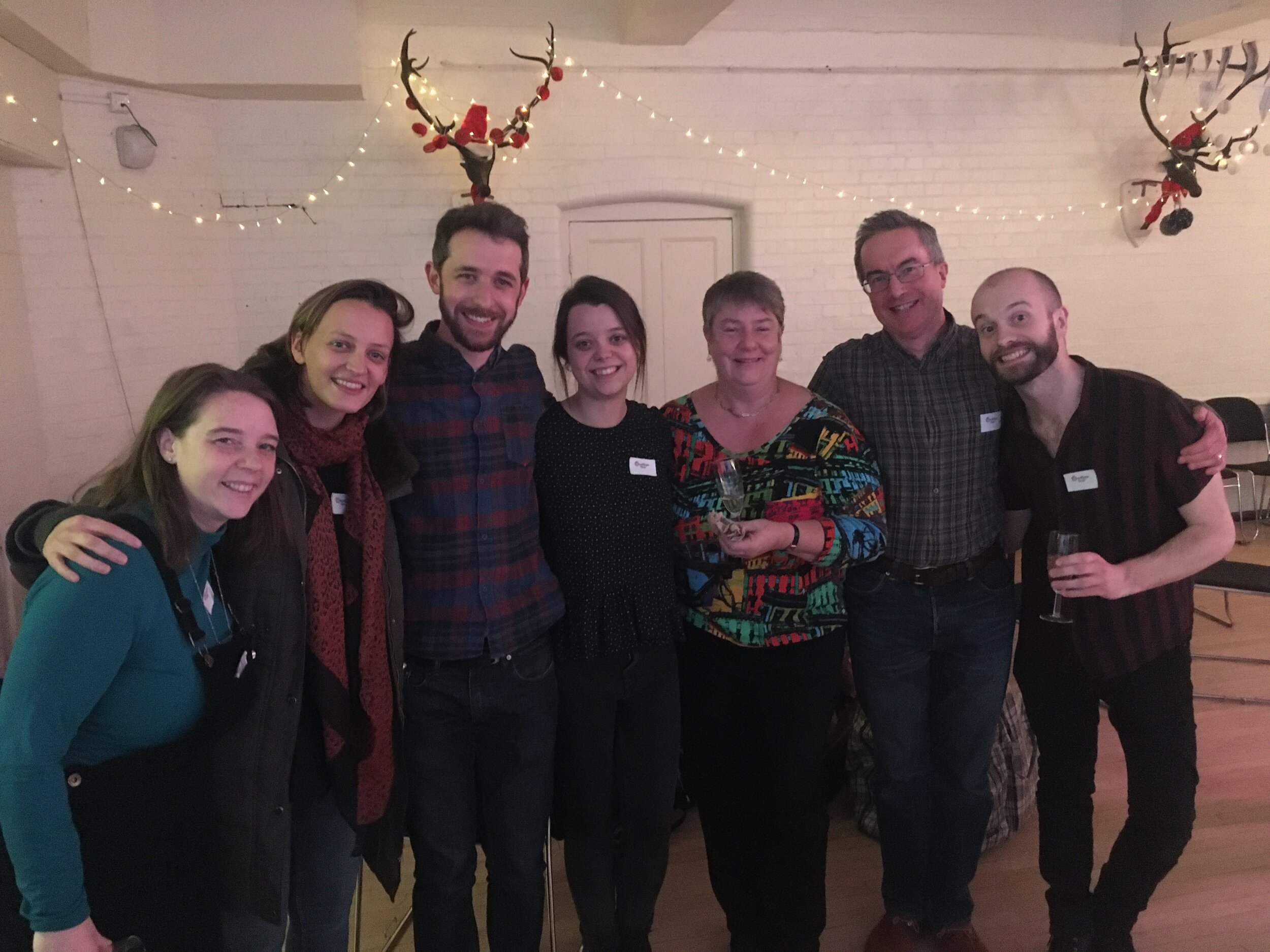From fugues to folk music, and everything in between, meet our new Artistic Director, Emma Oliver-Trend…
What’s your earliest musical memory?
I think that would have to be recorder lessons with my mum! My brother, sister and I were all home-schooled by our mum for a while as she was a school teacher and part of that involved learning how to play the recorder, so I think my earliest musical memory was standing in the lounge with them aged four playing lots of different tunes.
By the age of five I had joined Exeter Children’s Orchestra, so I can also remember meeting in a school with my sister and other young musicians for a two-hour rehearsal every Saturday morning and sitting on these little benches because we were all so tiny!
I think that may have been some of the most valuable musical training for me – when I first started, I don't think I could play the recorder but very quickly you learn through doing.
Artistic Director Emma Oliver-Trend plays the violin as a young girl
Tell us about yourself and your role at Orchestras for All.
I’m very proud to now be Artistic Director at Orchestras for All and my professional career has spanned well over two decades (can you believe?) in both the arts and education sectors.
I started out at the Welsh College of Music & Drama (now Royal) before completing my Master’s degree at Dartington College of Arts. Then I worked administratively at some amazing organisations, Music Theatre Wales, Welsh National Opera and Dartington Arts.
I also worked as a producer, collaborating with vocal animateurs – but because I was a practising musician, I wondered if maybe it was my calling to be the person leading rather than producing behind the scenes.
Make a donation to Orchestras for All >
Later on I trained to become a secondary school music teacher as I was keen to learn more about learning – and I come from a family of teachers, so I guess this area has always been my destiny!
By then, I had a good handle on education and decided to stretch my experience, so now I’m a freelance music practitioner and really love it here at Orchestras for All. I’ve created musical arrangements, conducted ensembles and worked with Marianna and the team on forming the artistic programme.
Emma Oliver-Trend leads the way at a concert with National Orchestra for All
I enjoy focusing my thinking on the how. Choosing the right repertoire is key, but it’s what you do with it that counts. With every community project, you seek to improve the lives of the people you’re working with – it’s important to think about musical and social outcomes.
Has this influenced the development of National Orchestra for All’s Spring theme?
Definitely! Our new theme is ‘The way we see it’ and it’s all about youth voice. While that’s presented in our repertoire, the way we actually run our rehearsals and how we involve young people in our decision-making ties in with the theme too. For me, it’s about community and the relationship between music and society.
To get that across, we’re using ‘The Young Person’s Guide to the Orchestra’ – an amazing composition written by Benjamin Britten – as the springboard for this season with NOFA and I’m currently working on the arrangement.
It’s often heralded as the piece that teaches young people about instruments but it’s so much more than that; it presents many different textures. The famous opening theme (the ‘Rondo’) is presented with a unified orchestra that represents solidarity.
As the piece goes on, you have four instrument families all speaking to each other and then the variations kick in, which allow each instrument to say something unique – there are some rather strong characters in there! Britten made lovely choices when supporting these instruments – for example pairing the oboe line with the violas and lower strings.
Of course, you also have that wonderful fugue where each instrument is heard with its own entry and you get real clarity. Unlike a lot of music that you hear which has a main melody on top, fugues take on an egalitarian form. Everyone is equal and has the same challenge, which I love – you can hear so many layers!
At the end of the piece, you have this amazing moment that always brings me close to tears. The main theme comes in with the bass instruments again… It gives me goosebumps just talking about it! It’s the perfect piece to help us present the idea that an orchestra can reflect society.
You have solidarity where everyone speaks as one, individual voices can have their say, and a diverse group of people are supported by others who they didn’t expect to meet. There are even agreements and disagreements in this music, so it’s definitely a true representation of today’s society! I can’t think of a more suitable set of principles to explore through music today.
Alongside Britten, we’re going to be creating two new pieces with NOFA – a bespoke digital project and a live creative work.
Emma Oliver-Trend conducts the National Orchestra for All
What do you enjoy the most about working with young people?
I love the energy they give you. If you want your young people to be energetic and responsive, you need to be energetic and responsive with them. It’s important to be authentic and nurture them in an environment that has a friendly, family-like vibe as I find they appreciate honesty and openness. Now more than ever, it’s important to give young people a voice.
Are inclusive ensembles the way forward?
Oh, absolutely – and inclusivity is central to our work here at Orchestras for All. We’re always looking for ways to improve and working with a wide range of partners to develop our practice.
It’s all about collaboration and we intend to stay at the forefront of those conversations, in the hope that we can inspire and empower even more young people throughout their lives and musical careers.
The former teacher shares her expert advice with aspiring young musicians
And finally, what piece of advice would you give to other young people who are interested in joining an orchestra?
My first piece of advice would be to join an orchestra that has a strong sense of community. Like I mentioned earlier, an orchestra is a representation of an effective society and that offers some real benefits, from boosting your confidence to developing your social and communication skills.
But I don’t mean just talking to people at break time – it’s all about the playing and special musical experiences where you are working really closely with your neighbour.
Since many rehearsals only take place once a week, my second bit of advice would be to play along with the music that you are learning at home. Try to get hold of a CD or recording of the piece and get used to hearing lots of different sounds while you practice your part.
Bring the ensemble into your home! When you all come together again, it’ll feel familiar and you’ll enjoy it much more as a result.


















